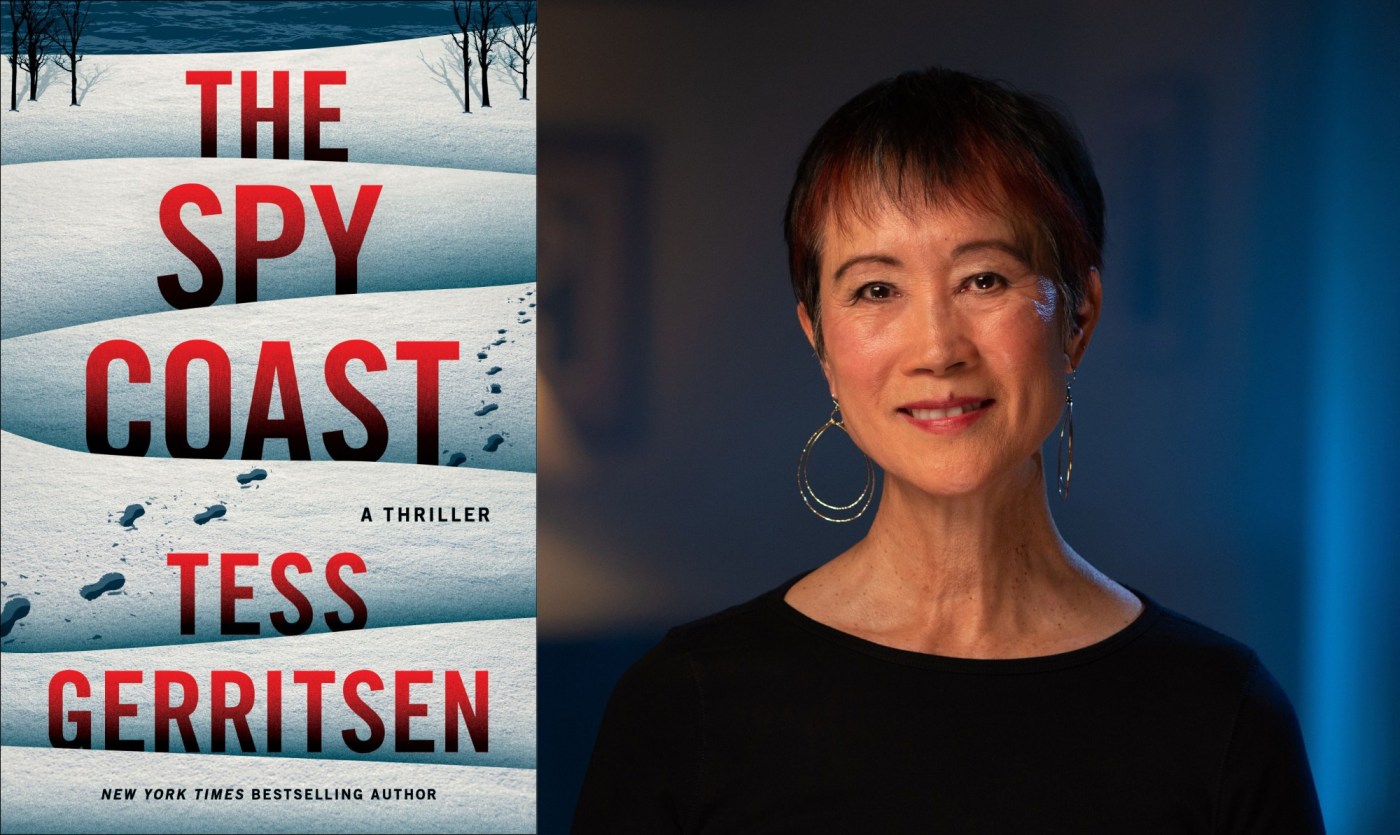
Novelist Tess Gerritsen’s neighbors are retired spies. So she wrote about it.
A mystery writer moves into a town full of spies.
It sounds like the plot of the latest streaming series, but that’s really what happened to the internationally bestselling mystery writer Tess Gerritsen, best known for her police procedural series featuring Boston homicide detective Jane Rizzoli and medical examiner Maura Isles (which inspired the TNT television series, “Rizzoli & Isles”).
Originally from San Diego, Gerritsen moved with her husband to a 5,000-person town on the rocky coast of Maine some 33 years ago – and what happened next eventually ended up inspiring her most recent novel, “The Spy Coast.” This novel also launches a whole new series for the author about a group of retired spies who called themselves The Martini Club.
Gerritsen makes a recorded appearance on Friday’s episode of “Bookish,” the virtual program produced by the Southern California News Group that goes live at 5 p.m. via Zoom with fellow guests David Ulin talking about his noir thriller “Thirteen Question Method” and author Sarah Blakely-Cartwright discussing her novel “Alice Sadie Celine.” Go to Bookish to get the link.
Meanwhile, here are some highlights from our forthcoming Bookish interview about the making of “The Spy Coast.” This has been edited for clarity and length.
On discovering her neighbors were spies:
“My husband is a doctor, so he opened up a medical practice. and when he brought in new patients he’d always taken occupational history. The patient would say, ‘I used to work for the government, but I can’t talk about it.’ And after I heard about it that for the third time, it was like, Who are these people? Where did we move to? We got the answer from a real estate agent. She said, ‘Oh, they’re all retired CIA.’
“It turns out it is the worst-kept secret in the state of Maine. We are packed with CIA retirees up here, not just in the mid-coast where I live, but also all over the state. I also found out that two of my neighbors living on the street were retired spies. I found out that my son’s best friend’s parents were married spies. And then there was a period of time where I was having dinner parties, I found out later that every time I’d had a dinner there was a spy at that table.”
On why spies settle in Maine:
“Why are they here? I’ve heard various explanations. One is that this used to be a location of safe houses; the CIA would send people up here to hide away. Another is that it’s far from any nuclear targets. And then I’ve also heard that Mainers, you know, we have a reputation for minding our own business. We won’t pry. And so we’re very respectful of people’s privacy up here. And then finally, you know, there was some CIA activity up here in the late sixties and early seventies. So I think a lot of spies came up here, found the state, loved it and decided, ‘This is where I’m gonna retire to.’”
On how she researched the world of espionage:
“You know it’s tough because [retired spies] can’t, or won’t, talk about it – although I heard that there was one spy up here with Alzheimer’s who wouldn’t shut up about it…
“Well, first of all, I did not want to write a James Bond book where people are running around with guns. I really was more interested in the emotional toll of being in espionage. What is it like to be in a career where you can’t really tell the truth all the time? What do you do? Can you tell the truth to your spouse? Can you really make friends without feeling like there is secondary gain involved? So I wanted to get into the nitty gritty of character for the kind of person who becomes a spy. To get that I went to memoirs. You know there are a number of memoirs written by former secret agents.
On why it took her this long to write about the world of retired spies:
“You know, it is funny that it took me this many years to write this story, but I think it’s because I had to be older to understand what retirees go through.
“I was interested in these people in these silver-haired people I see at the post office, or, you know, at the grocery store. They have ordinary lives. But what do they do now? What do you do after you’ve had an interesting job as a spy – do you have cocktail parties? Do you have book groups?
“I was writing my characters Rizzoli and Isles in their mid-to-late thirties back when I was that age. But now I am retirement age. I’m the age of some of [“The Spy Coast”] characters, and I understand what it’s like to get older, to suddenly be considered over the hill. To be overlooked. Maybe people think, ‘Oh, you’re not as capable as you used to be when you were 35,’ but my spies, they are capable. Maybe maybe they can’t run as fast, and maybe their joints have been replaced. But they haven’t lost their marbles, and that’s what I wanted to get into – people who really still want to be useful, but are overlooked.”
Related Articles
10 tips to avoid a cooking fire this Thanksgiving
Here’s why cranberries are more than just a Thanksgiving side dish
‘Friends’ share tributes to Matthew Perry after his death
Taylor Swift-Travis Kelce romance gets props from Chiefs coach: It’s ‘a good thing’
‘David Holmes: The Boy Who Lived’ chronicles stuntman’s tragedy & triumphs


